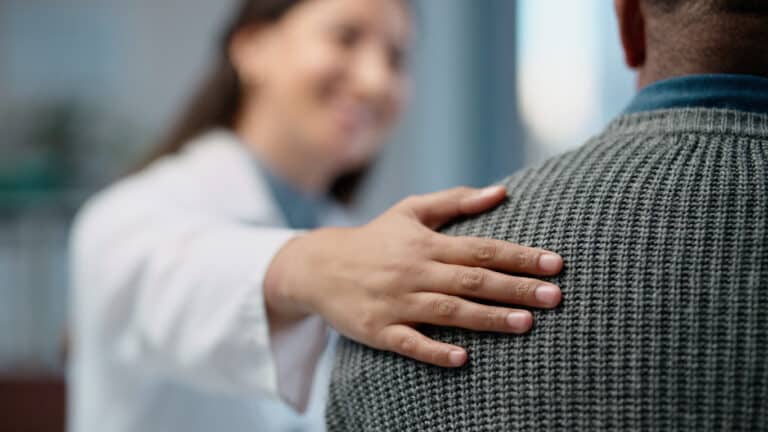Addiction takes its toll on any relationship. In some cases, it leads to conflicts based on dishonesty and secrecy surrounding drug use. In other cases, it creates unhealthy dynamics of enabling drug use and co-dependency. Scientific study confirms that couples usually have extensive relationship problems when one partner is abusing drugs or alcohol.
If you or your loved one is seeking treatment for addiction, you may want to participate in couples therapy. When offered alongside other addiction treatment approaches like individual therapy, behavioral therapies, or family therapy, couples therapy can help you increase your relationship satisfaction and stay away from substance use.
How Does Couples Therapy Work in Rehab?
Couples therapy aims to help resolve conflicts between partners while developing a healthy relationship that can support the substance user in maintaining abstinence.
Your couple’s therapist helps create a safe, open space for each partner to express themselves. They guide couples through discussions and prevent disagreements from escalating into arguments. The aim is for each partner to be equally heard so that problems can be fairly resolved.
Your therapist will also give you exercises to practice in between sessions to help you develop skills for maintaining a healthy relationship. This may include building communication skills, showing acts of kindness, or interacting with compassion and care.
Healing your relationship is itself an important part of the recovery process. Stress and conflict often cause substance users to turn to drugs, whereas good mental health and overall well-being make it easier to maintain abstinence.
Couples counselling in rehab also provides direct interventions to support your recovery journey. This often canters around a recovery contract. Your therapist draws up the recovery contract at the start of the therapy program to set out obligations and responsibilities for each partner.
The responsibilities may include:
- the substance user making daily pledges to maintain abstinence and their partner pledging to support them.
- both partners attending support groups.
- both partners agreeing not to talk about past events outside of therapy sessions.
The Dos and Don’ts
Everyone’s relationships, circumstances, and experiences with addiction are different; however, there are some general guidelines to help you get the most out of couples therapy.
Do: Be Open-Minded
While you may be angry with your partner, it’s important to approach each session with a positive outlook and the belief that you can improve your relationship. If you are not open to therapists’ suggestions, it will be difficult to make constructive changes.
Don’t: Be Impatient
Healing relationships takes time, energy, and commitment, so don’t expect to solve all your problems in one session. Have patience, and commit to making the required changes over the course of weeks or months. You should see meaningful and sustainable improvements with time.
Do: Be Ready to Accept Feedback
Almost all relationship problems are two-sided. Be willing to recognize that you may not always be acting or thinking in the best way, and accept the feedback of your partner or therapist. If you are too defensive, you may have trouble moving forward in your relationship.
Don’t: Expect Your Partner to Change First
Don’t wait for your partner to make the first steps. If you take the lead in making meaningful changes to your relationship, your partner will see that you are taking the counselling seriously and will feel motivated to do the same.
Read more: Detox Orange County
Towards a Healthy Sober Life
Following these guidelines can help you get the most out of couples therapy in rehab and will help rebuild a strong and supportive relationship. Fixing a relationship takes time, and you may want to continue couples therapy after your rehabilitation program finishes. Your couple’s therapist will be able to offer suggestions for which groups may be suitable for you.






